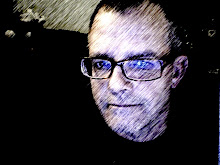We had two weeks of training in Osaka to learn the Berlitz "method" which was in essence the way that conversational English was taught in Japan.
Is the book on the table? Yes, the book is on the table.
Is the book on the floor? No, it isn't on the floor.
Where is the book? The book is on the table.
Is the book on the table or on the floor? It's on the table.
Yes, No, Key and Or questions took over our waking hours and our dreams as well. No free conversation. I was petrified in my first lesson, sweating profusely and the student should have received a refund. This was made worse by the ever-present monitoring of the teachers, by the head teacher. Use the method. No free conversation.
We encountered the Catch-22 of working in Japan, which was that you couldn't work without a visa and you couldn't get a visa without a job. We had to fly to Korea to apply for the visa and then return to Japan on the tourist visa, then 3 months later, return to Korea to have the visa stamped in our passports.
The Japanese were extremely polite to strangers. When Chris and I first arrived in Tokyo, a guy rode the subway with us, far out of his way, until we reached the right station. In the street they dove out of our way. They tended to dodge left, like their driving. We got used to going to a noodle shop, taking the owner outside and pointing to the plastic replica of the food we wanted to order. We got used to people staring at us. We walked miles to a government building to see Dan Rather deliver the news in English. With no TV we read a lot. We drank a lot as well.
Nagoya was the fourth largest city in Japan, but far behind Tokyo, Osaka and Yokohama in internationalization. We were from the moon as far as the Nagoyans were concerned. There was little other than drinking to do there.

